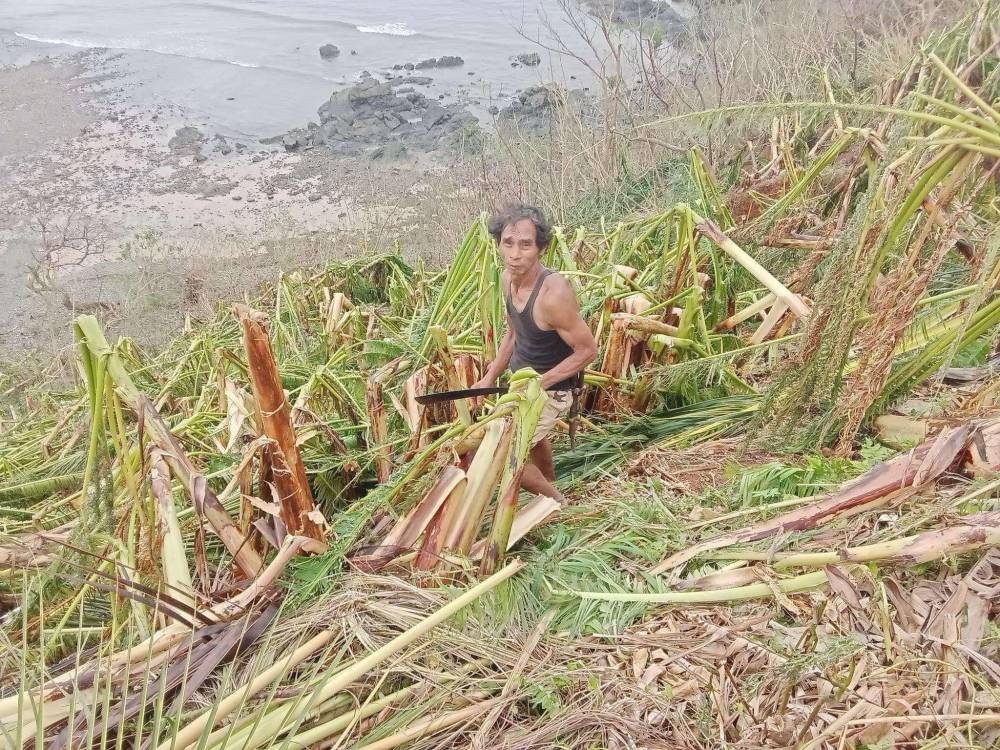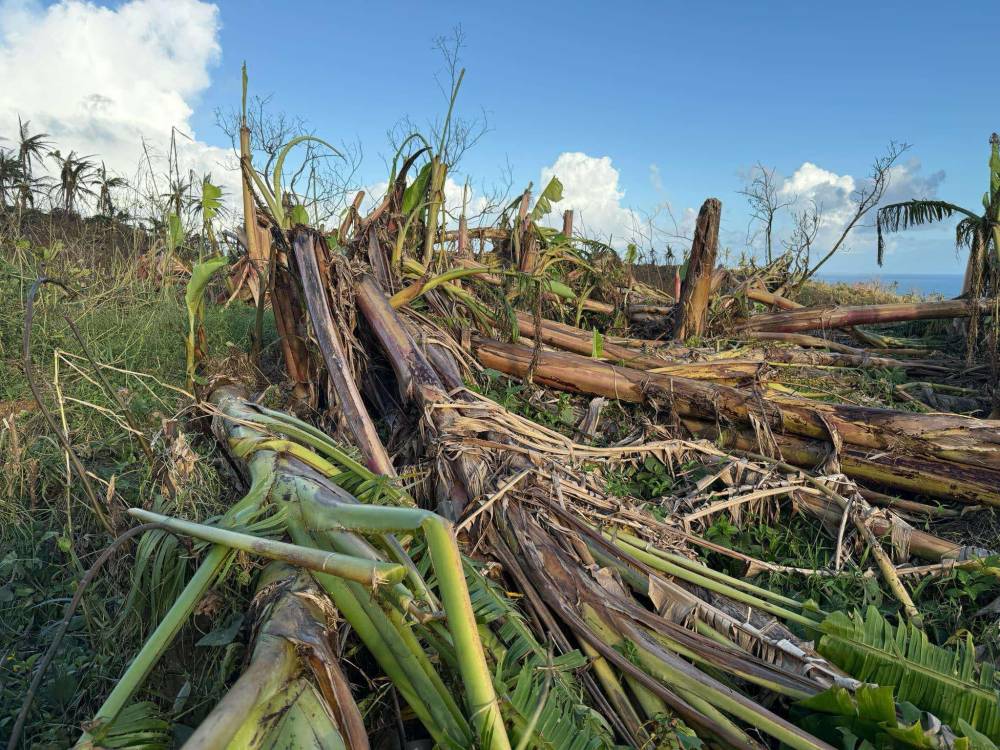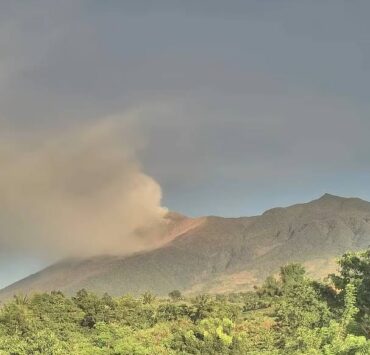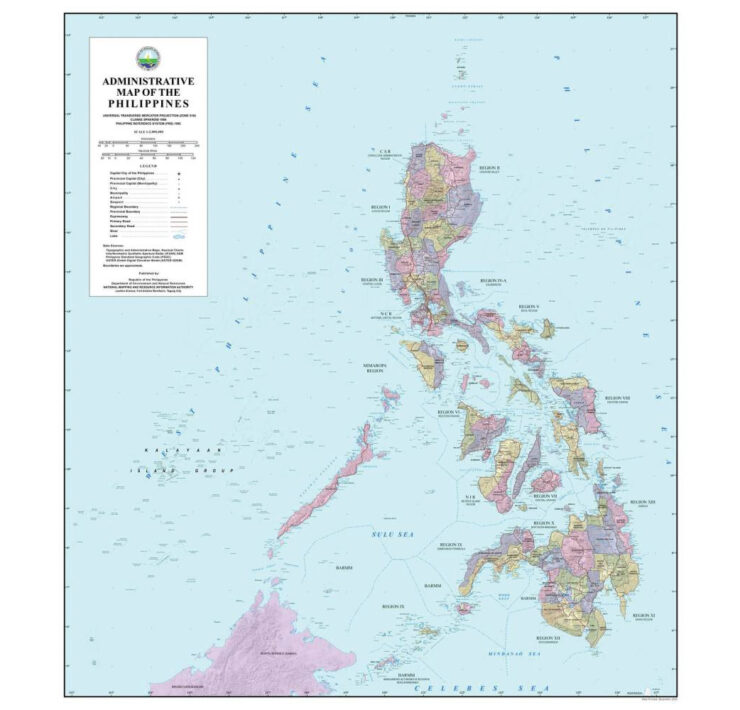Catanduanes’ abaca farms ravaged by ‘Pepito’

LEGAZPI CITY—Supertyphoon “Pepito” (international name: Man-yi) has left a trail of destruction in the island province of Catanduanes, ravaging over 23,000 hectares (ha) of abaca plantations which have been sustaining the livelihood of thousands of farmers in the Bicol region.
In a telephone interview on Wednesday, Director Mary Anne Molina of the Philippine Fiber Industry Development Authority (PhilFIDA) said the onslaught of Pepito in Catanduanes would disrupt the local economy and severely impact the supply of abaca fiber in both domestic and international markets.
“Catanduanes, the capital of abaca production and a major supplier of abaca fiber—a key material used in various products such as ropes, textiles and specialty paper—will definitely suffer. Farmers will need to wait for two to three years for the abaca plantations to recover,” Molina said.
Based on ground assessments by government teams, 8,234 ha of plantations in the province had moderate damage, while 15,212 ha had extensive damage.
“With the damage incurred, the market is greatly affected. Catanduanes supplies 27 percent of the country’s total fiber production and contributes 81 percent to the entire Bicol region’s output,” Molina added.
“We have bulk stocks, but for sure, they will not sustain the demand of the market,” she said.
She warned farmers that the recovery process would be slow, as abaca plants take 24 months or more to regenerate.

Financial aid
Government records showed that 13,777 farmers were displaced by the typhoon in Catanduanes, which pounded the province on Sunday following two successive typhoons that also crossed Bicol on their way to northern Luzon.
“They will receive financial assistance depending on the severity of the damage [to their plantation],” Molina said.
She said farmers whose plantations sustained slight damage would receive P5,000 in assistance, while those with moderate to severe damage would get P6,000 to P10,000.
Despite the devastation, Molina said farmers could still earn from toppled abaca plants by stripping them and converting them into fiber.
“The best way to save the plants is to cut the damaged parts so they can sprout and have a chance to survive,” she said, noting that prices are expected to increase due to the limited supply and high demand.

Businesswoman Medi Villanueva, executive vice president of Shelmed Cottage Treasures, said the destruction of plantations would not only affect production but would also displace farmers and their families who lost their sources of livelihood and their houses.
“What we need to address first is providing them with construction supplies so they can fix their homes and workplaces,” Villanueva told Inquirer in a separate telephone interview.
The devastation would significantly impact the industry since most suppliers depend on processed materials sourced from Bicol.
“My concern is how we can sustain production to meet the demand of exporters,” she added.





















